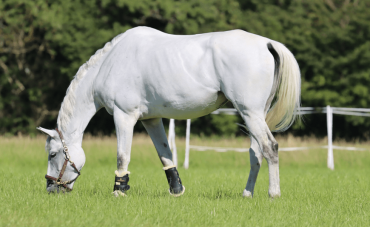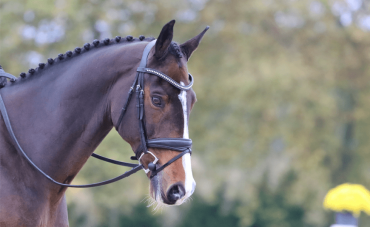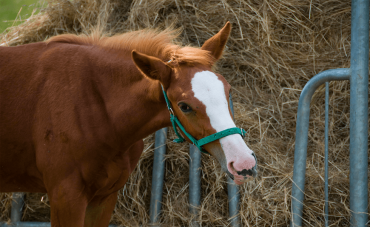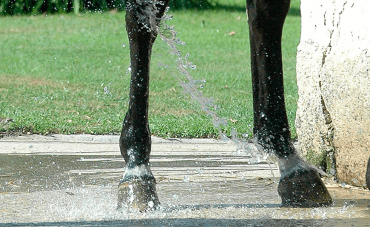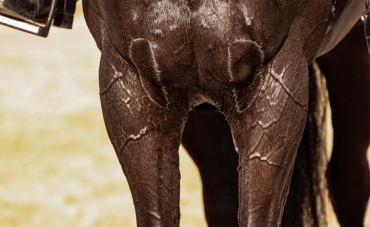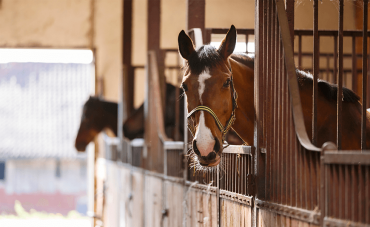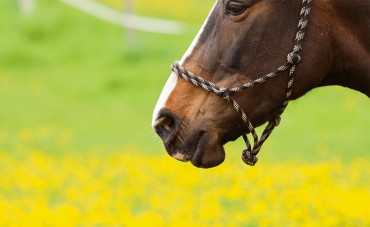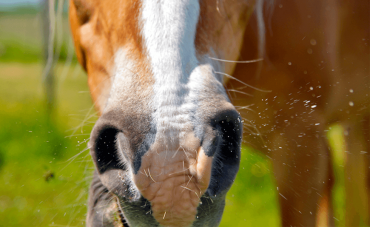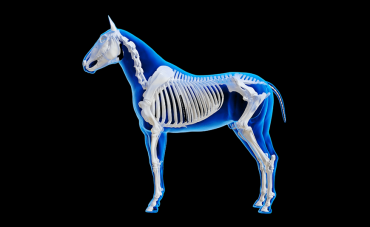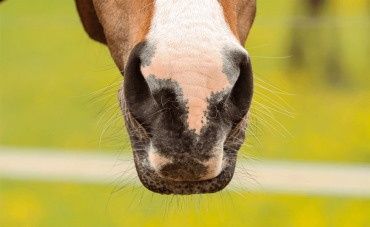Causes
Stressed? Struggling to maintain condition? Reduced appetite? Loss of performance? If your horse shows any of these signs, he may be suffering from gastric ulcers.
Is this serious?
Yes and no, gastric ulcers are rarely life-threatening, but they can negatively affect a horse's performance and cause chronic pain.
How can you be sure it is a gastric ulcer?
The signs of gastric ulcers are not always obvious and visible. An underperforming horse can suffer from various issues such as back pain, sore feet, or decreased energy, to name a few. However, there are some clues to look out for, including a horse that leaves its feed unfinished, stops eating during a meal, or experiences colic immediately after eating. Inability to gain weight despite a suitable diet are also indicators that suggest gastric ulcers. Today, the only accurate and reliable way to diagnose gastric ulcers in horses is through gastroscopy.
What is gastroscopy?
Gastroscopy involves passing a camera up one of the horse's nostrils and down into the stomach. This procedure must be performed by a veterinarian and allows for the direct visualisation of ulcers in the stomach. These ulcers appear as wounds on the stomach wall. Gastroscopy is generally well-tolerated by the horse, with the most discomfort occurring during the insertion of the small tube containing the camera into one of the nostrils. The horse needs to be sedated to prevent the camera from being shaken around during the examination.
My horse has ulcers, what should I do?
Don't worry, there are solutions. The treatment involves two aspects. The first part consists of prescribed medication aimed at reducing stomach acid production. By decreasing acidity, the inflammation of the stomach lining can be reduced, allowing the healing process to commence. This medication is known as omeprazole and is administered orally via a syringe containing a paste. Additionally, a second treatment can be employed, which acts locally as a paste-like coating complex. This can be in the form of a liquid gel to be swallowed, sucralfate, or in the form of a feed supplement (containing the pectin-lecithin complex) that forms a gel to protect the stomach's inner lining.
The second part of treatment involves managing the horse's environment, which is equally important as the medical aspect.
- Feeding should be adjusted to minimise the risk of acidity. Concentrated feed (starch) should be avoided, and forage intake (hay) should be maximised, as it promotes saliva production, reducing acidity.
- Horses should have access to fresh drinking water at all times. Horses that go to pasture without access to water are more likely to develop ulcers.
- Stress reduction is also crucial in managing the horse's environment to lower the likelihood of ulcers. Providing horses with as much social contact as possible, such as having pasture mates, can help reduce stress. When horses cannot live outside, they should be stabled where they can at least have eye contact with other horses.
My horse has been treated for ulcers in
the past. Are they
likely to recur?
To prevent recurrences, there are a few factors to consider:
- Ensure that the daily starch intake is not excessive and make sure there is enough hay and grass to encourage continuous eating throughout the day.
- Limit extended periods without access to food.
- Ensure that fresh drinking water is always available.
- Minimise stress.
- Avoid isolated stables.
- Regular outings to combat boredom.
Using a complementary feed can help reduce stomach acidification and protect the stomach's inner lining. Our Ekygard+ contains innovative ingredients to safeguard the stomach's mucous membrane and reduce its acidity. It includes the three ingredients recommended by the European group of equine internal medicine specialists.
Source: European College of Equine Internal Medicine Consensus Statement - Equine Gastric Ulcer Syndrome in Adult Horses. B.W Sykes et al. 2015

